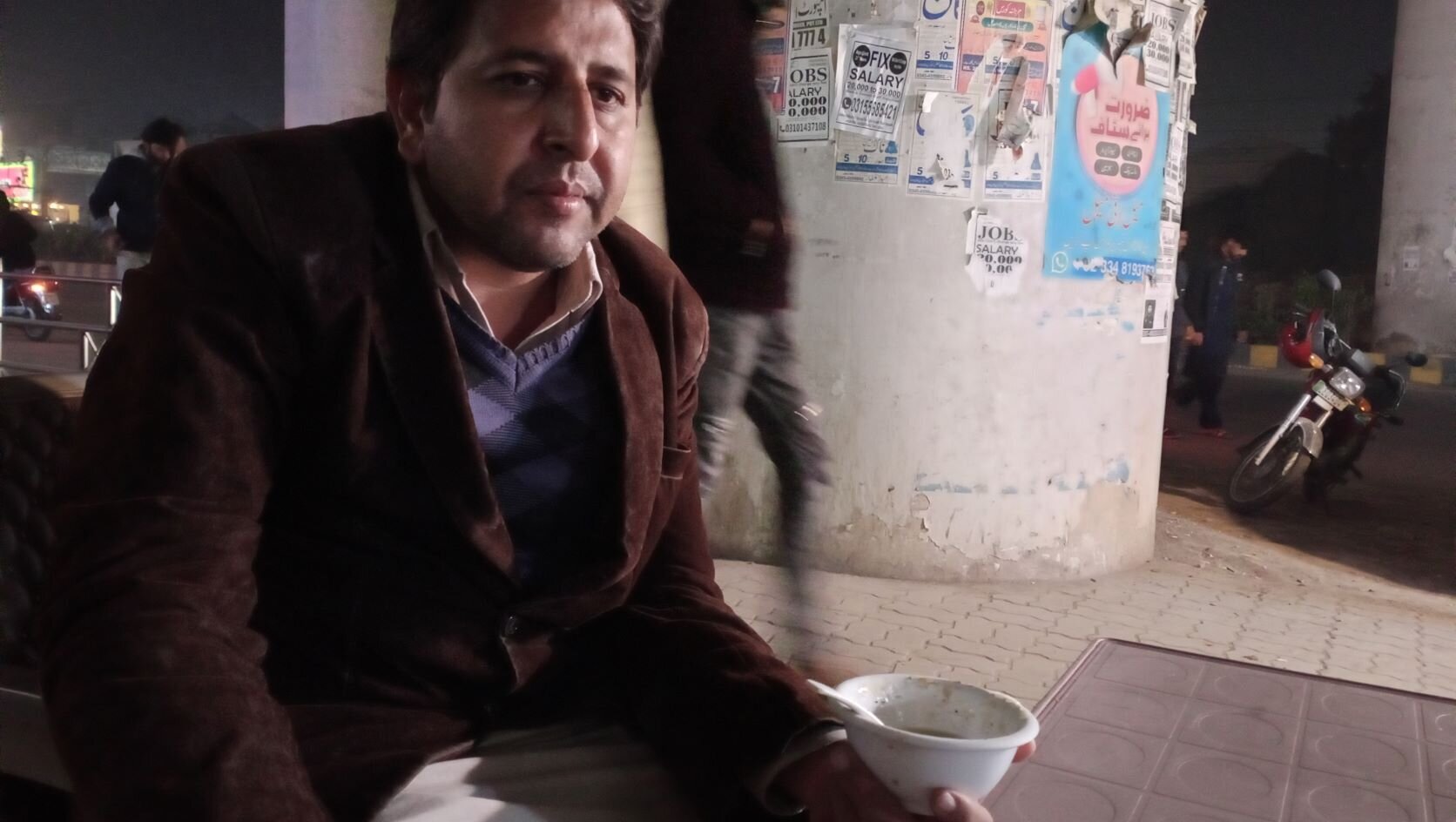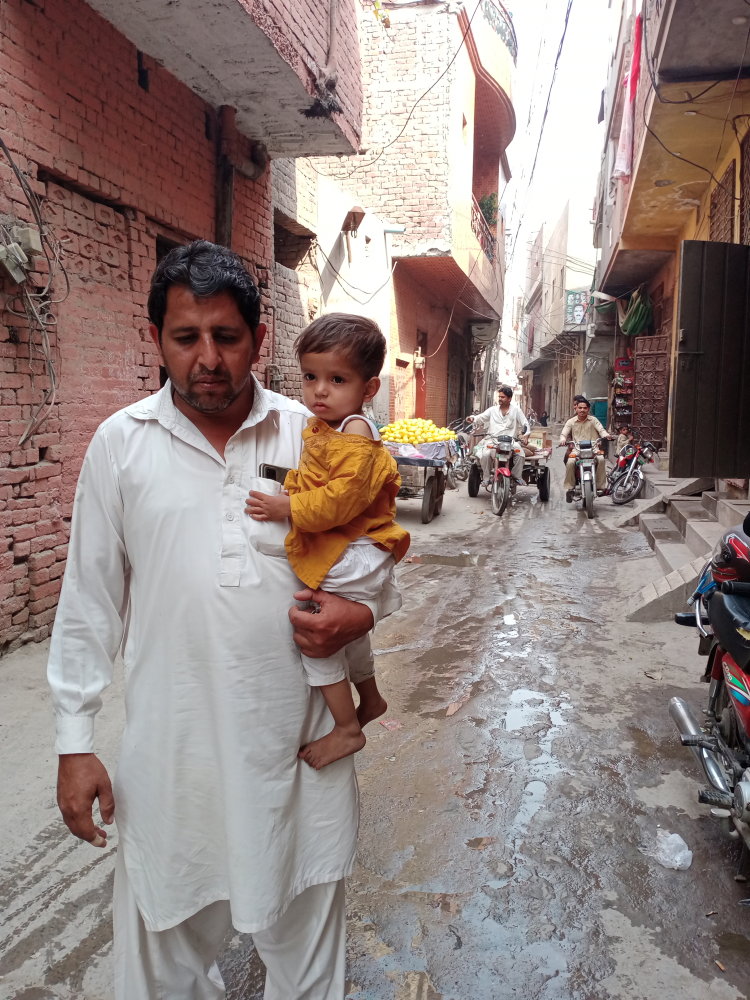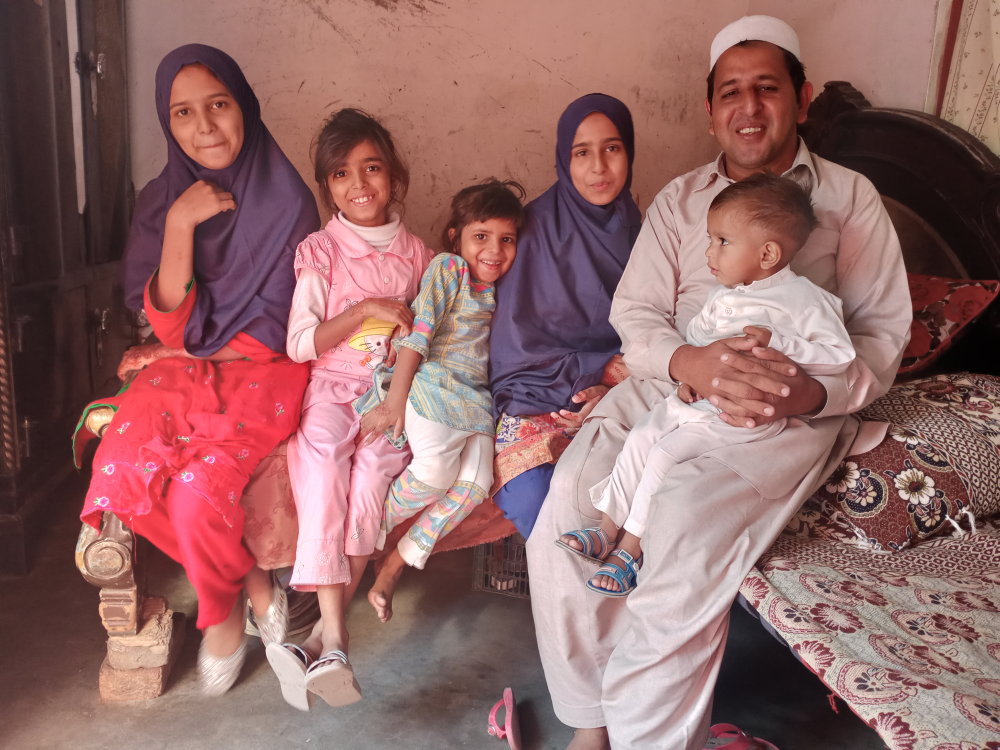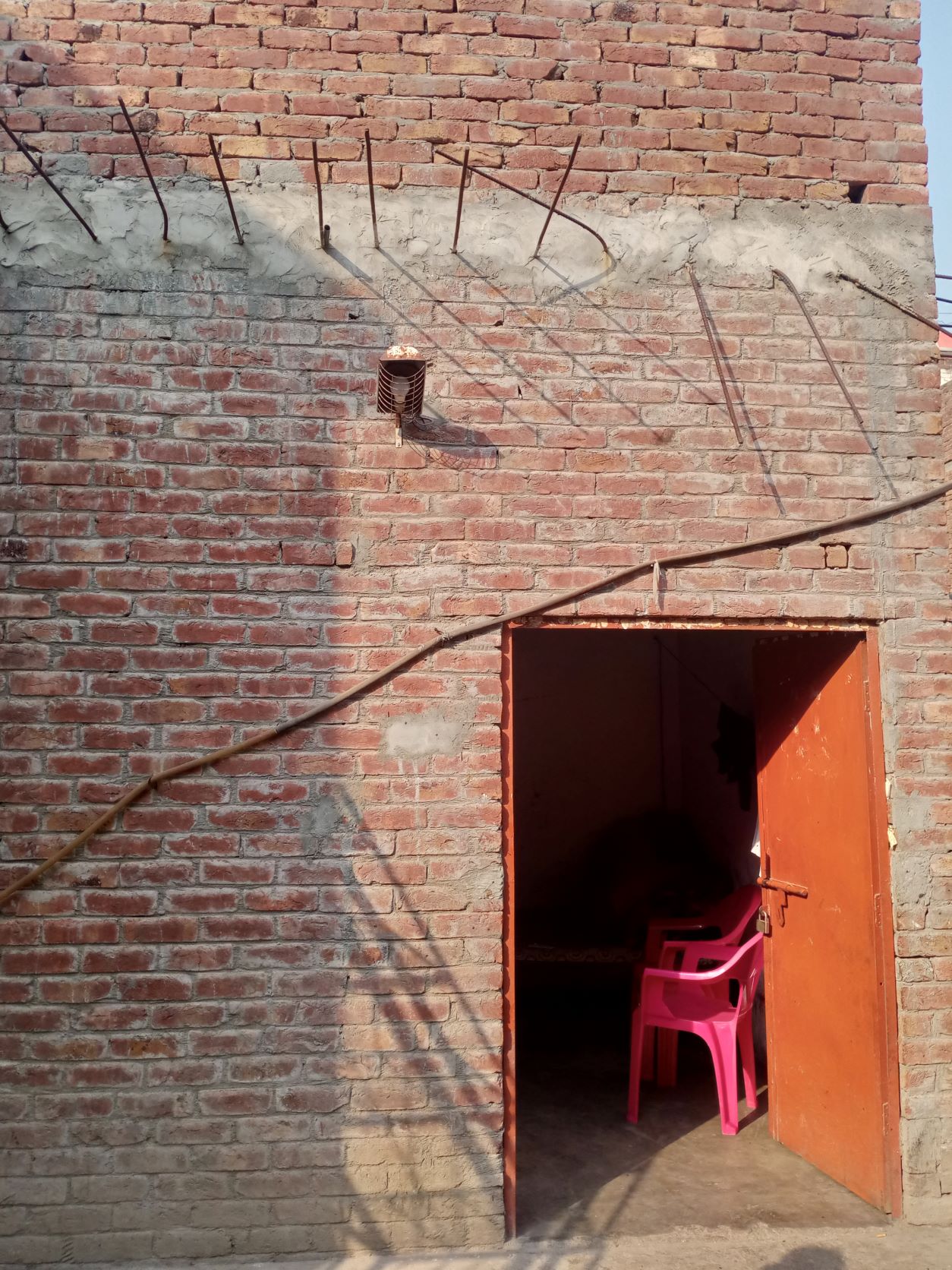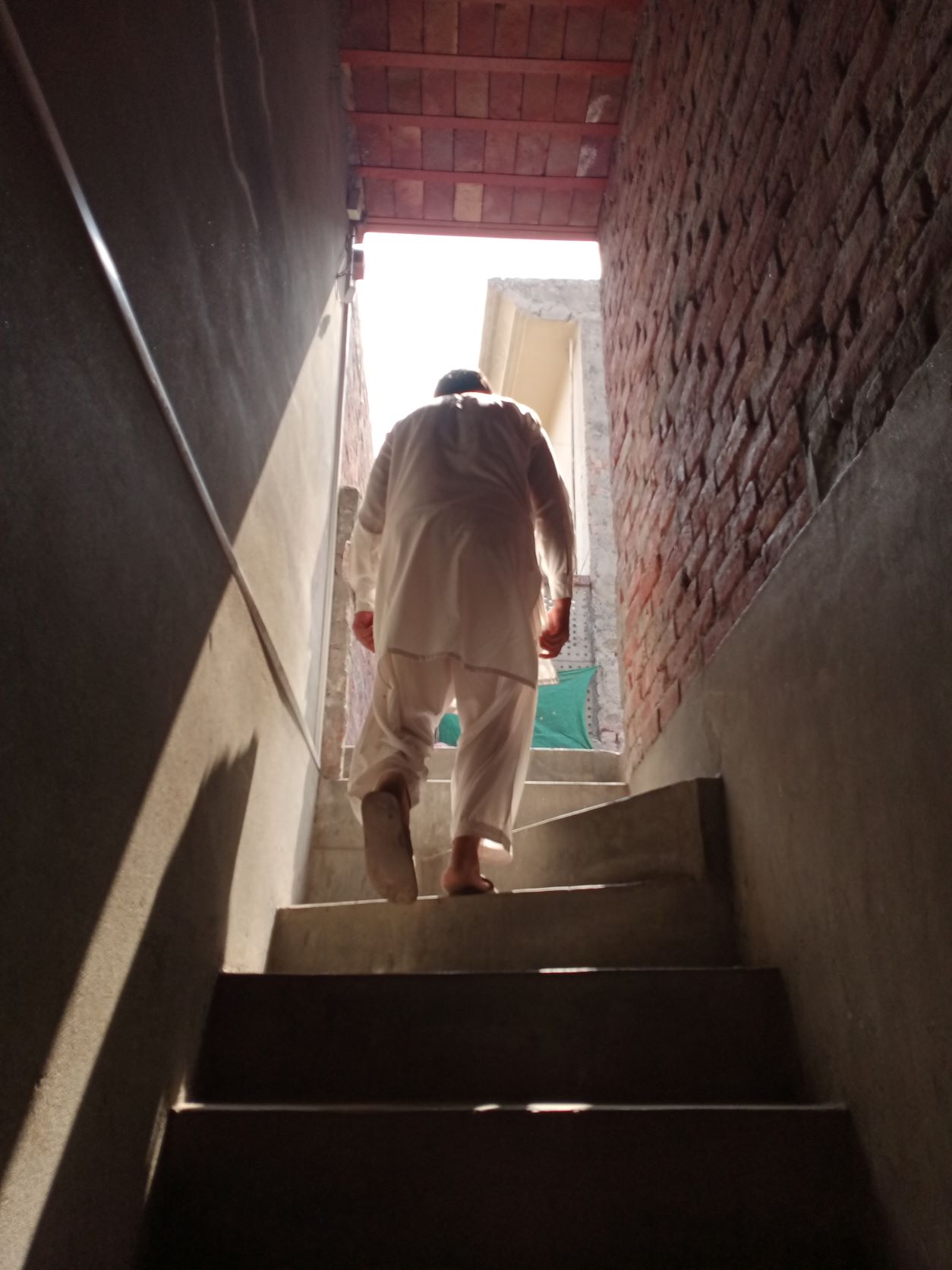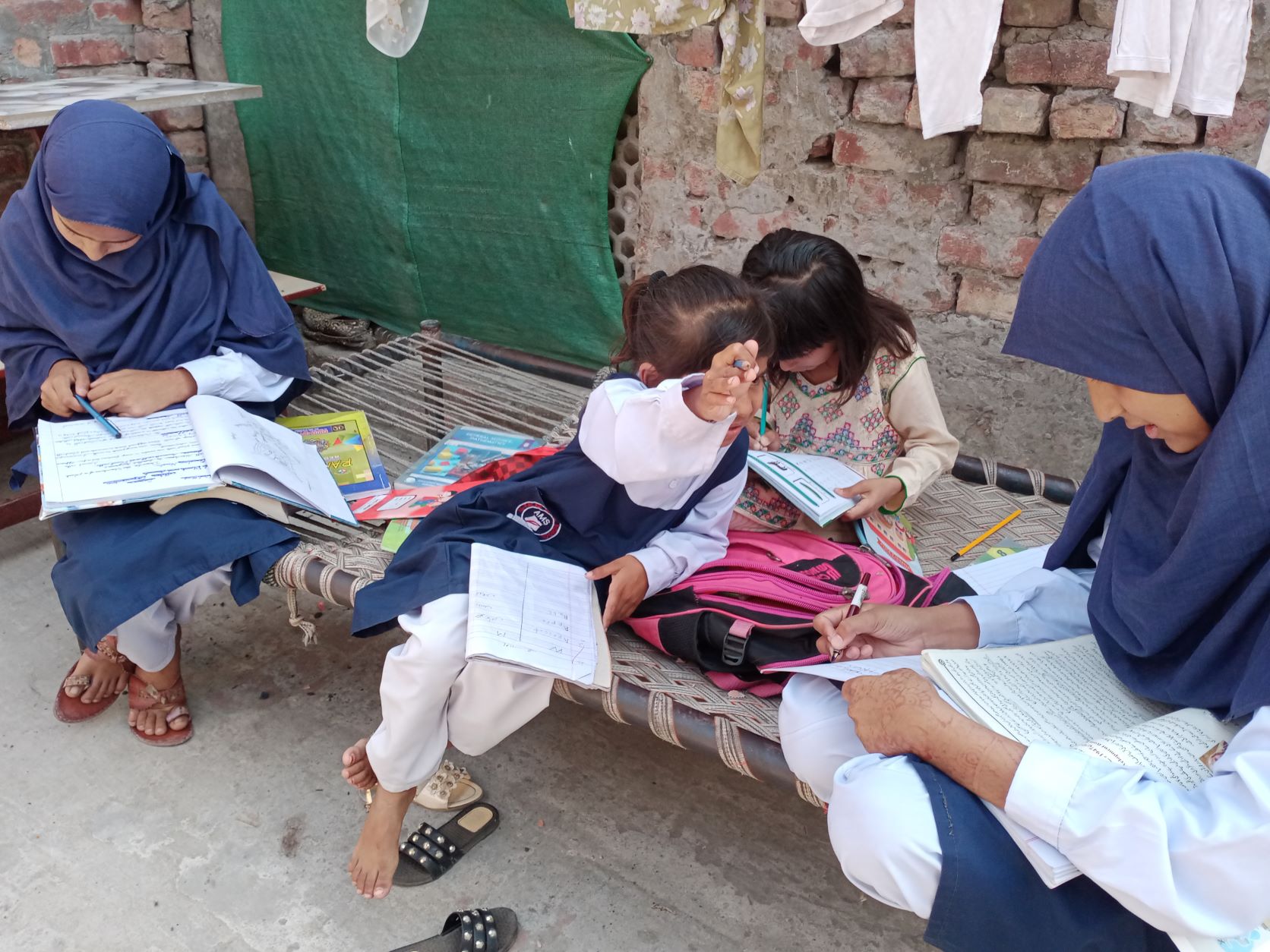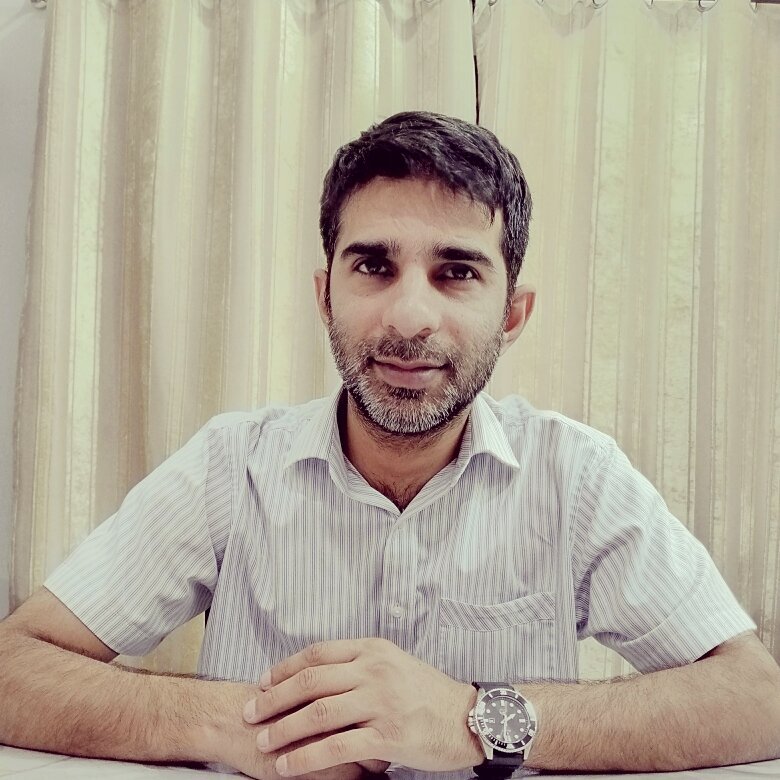In Pakistan, the poor turn to a sophisticated network of philanthropists to avoid the shame of borrowing from family and friends.
Ahmad Junaid was at a wedding when his mother died. "I had to get a bus to my sister’s house where my mother's dead body was waiting," he said.
He cried the whole way, "The driver was making unnecessary stops to get more passengers. I told him my mother had died, but he replied: 'So what? Someone dies every day.'"
That was only the beginning of the indignities waiting for Junaid. His mother had died in another man’s house, a mark of shame in Pakistan as others were quick to remind him.
"When I finally arrived, the first words that reached my ears were, 'Look at these people with no dignity.' My father-in-law came to me and said, 'I don't have any respect for you, nor do I want to be here. I am only here because my daughter is married to you.'"
It's been 14 years since that moment, almost all of them hard. Junaid is a 33-year-old rickshaw driver caught in the torturous world of poverty, debt and family ties in Pakistan.
His rickshaw is rented, as is the house where he lives with his wife, Sidra, his four daughters, Sumbal, Alina, Sawera and Falk, and his son, Ammar, who is just two years old.
"Although I am struggling to feed my family, I want to educate my daughters. I don't want them to end up like me," Junaid told me.
Junaid has been working since he was six years old. "My father and I, we used to pick vegetables for farmers and carry heavy loads in order to make a living." His father was also burdened by debt. "We moved to Lahore in order to make our fortune and avoid the collectors."
As happens everywhere, people from Mr Junaid's background find it very difficult to get bank loans when they have no assets to show the bank. "These people depend on loans from their family and friends," said Sheikh Zahid Qabli, a social worker who has provided financial support for families for over four decades.
"Taking a loan from a relative is fairly easy, but it is very risky. If it becomes known to other relatives one loses respect and the whole family is embarrassed. Everyone starts distancing themselves. Taking a loan from a friend is easier, but it can only happen once or twice."
Junaid was picking up two elderly passengers in his rickshaw in September 2021 when his phone rang. It was a woman he owed 125 euros, who started shouting at him. Although embarrassed, he couldn't cut the line. He didn't want this creditor showing up at his home.
When he finally got free, one of the passengers asked what the argument was about. He explained the situation and the man then said he knew someone who might help. "He wrote down a name, an address and a telephone number."
The name on the piece of paper belonged to a philanthropist, Mr Barkat Ali Luna. Junaid wrote to him, stating that although he worked hard, he couldn't "meet his expenses as he has four daughters and one son, he lives in a rented house and drives a rented rickshaw."
He told the stranger that every month he has to borrow money from someone, and said he desperately needed a loader, a three-wheel cargo vehicle. There is, he said, not much profit left in rickshaw driving. With a loader, he wrote, he could earn a respectable living and continue the education of his daughters.
The letter was born of desperation. At around the same time he was berated by the woman to whom he owed money, Mr Junaid received a call from the principal of his daughters' school. "I was told, 'It's been six months since you paid the fees for your children. I will send them back home if you don't pay soon.'"
Mr Junaid begged him not to close the door on his girls, but was told the school had already given him a discount and now it was time to pay. He was told he only had a few more days.
"Whenever I reached home my wife would be holding her head in her hands," said Mr Junaid. "I'd tell her everything is going to be fine."
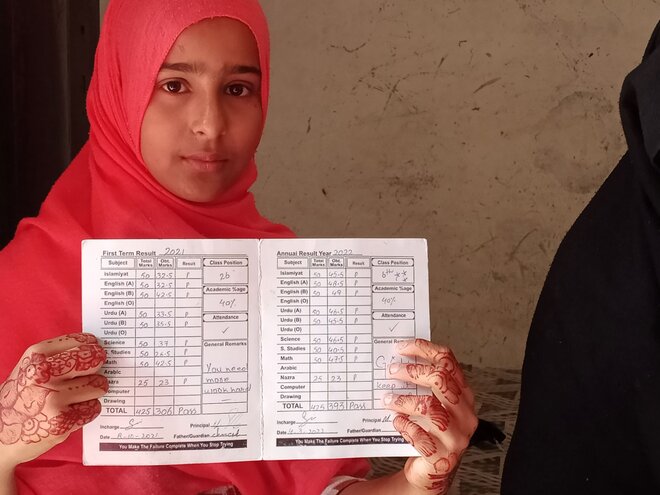
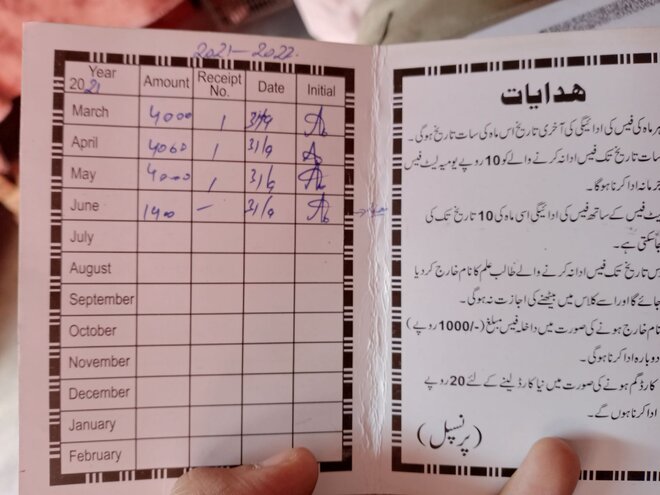
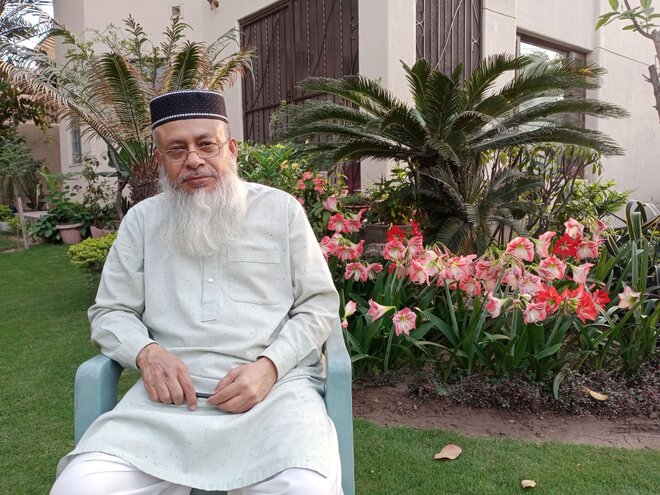
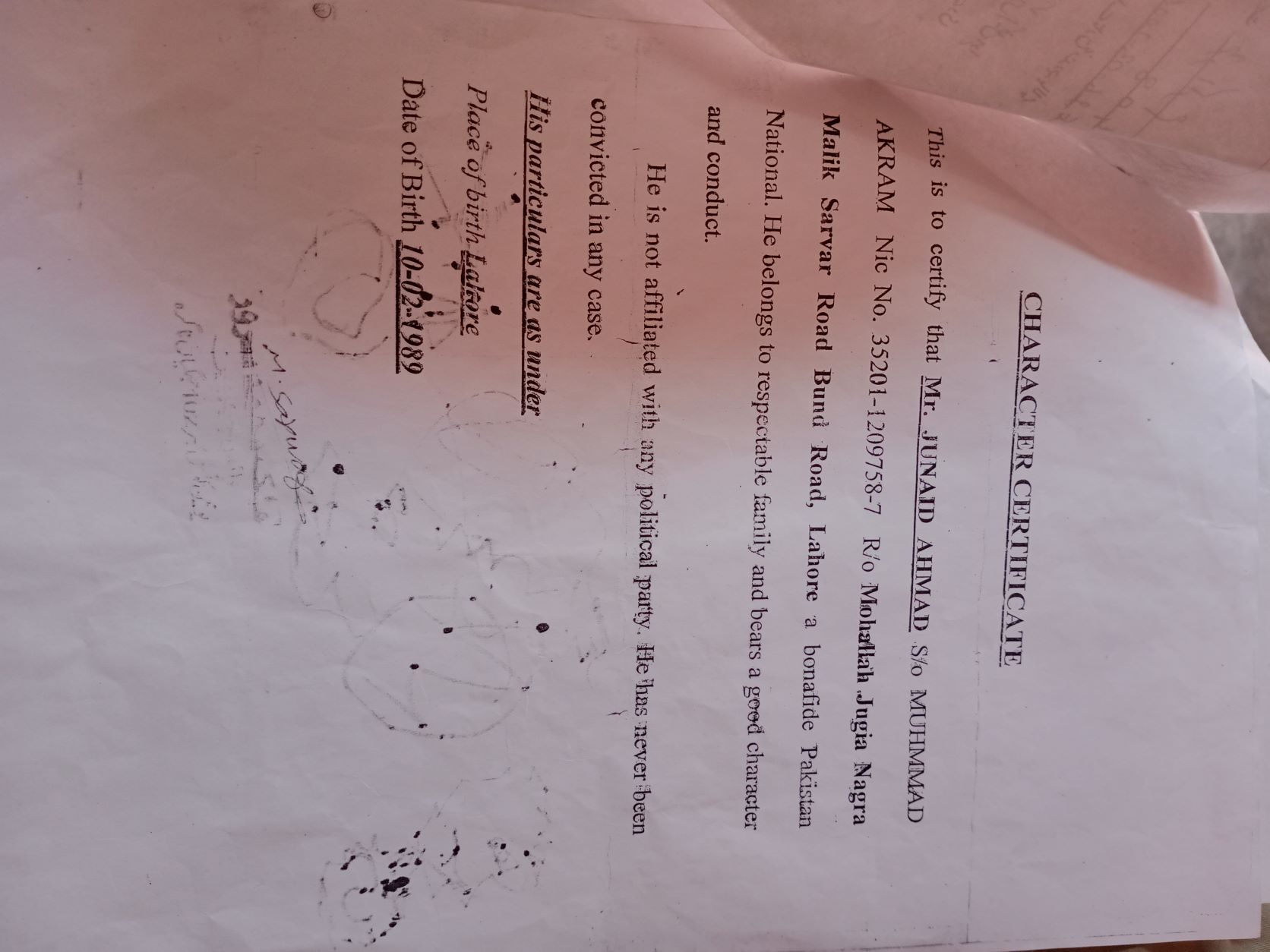
While Mr Junaid awaited a response to his letter to Mr Barkat, he reached out to many other people in desperation to arrange the fee for his daughters' education, and someone introduced him to Mr Zahid. When Mr Zahid looked into Mr Junaid's financial situation, he was touched by his dedication to educating his daughters. The first thing he did was pay all the remaining fees for Junaid's daughters.
"I want to help people, but I don't want to create more beggars on the road," he told me. "If Mr Junaid has some loan to pay that he took on interest, I am willing to make a full payment to get him out of the loan. But he has to pay me the actual amount although I will take no interest from him. I want him to realise people can support him if he is willing to work."
In Pakistan, it is very common for everyone to give alms and charity, regardless of one's condition. It is a common sight on the roads to see the non-wealthy stop by a signal to put money in a charity box which is chained next to a pole. Most business people are philanthropists, too. Some do it for PR, but many others genuinely like to help people.
From Junaid's perspective, the opportunity to work hard is all he wants. "I have discovered that rickshaws won't leave you starving, but they will never let you make progress. This is why I want to drive a loader. I am scared that if someone kicks us out of the rented house I would have nowhere to go with my daughters."
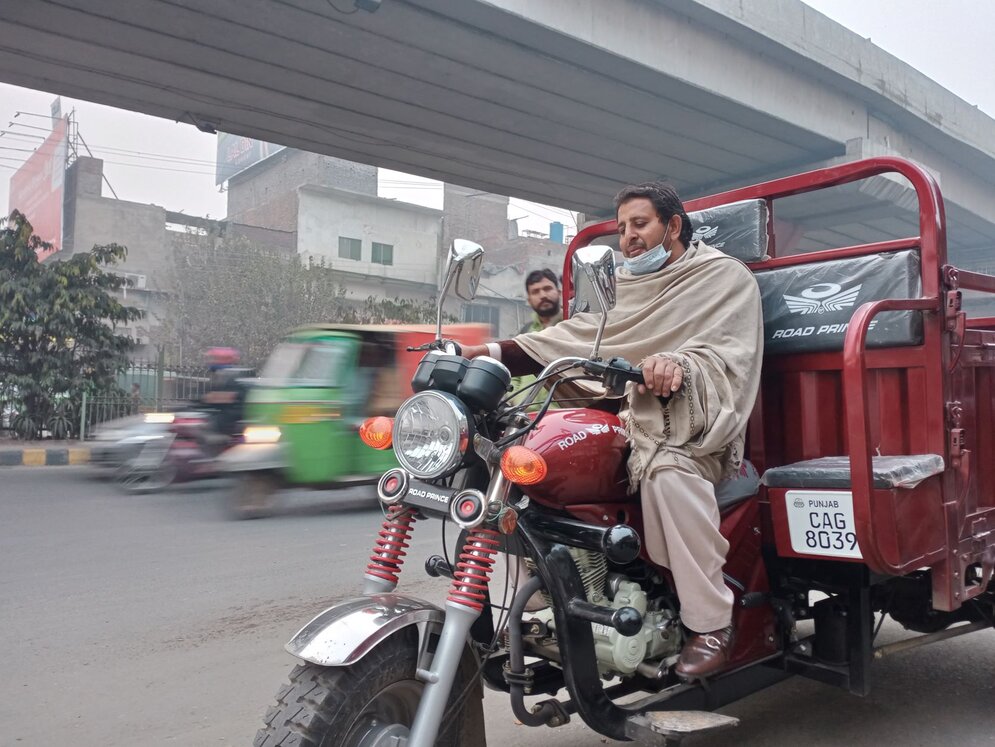
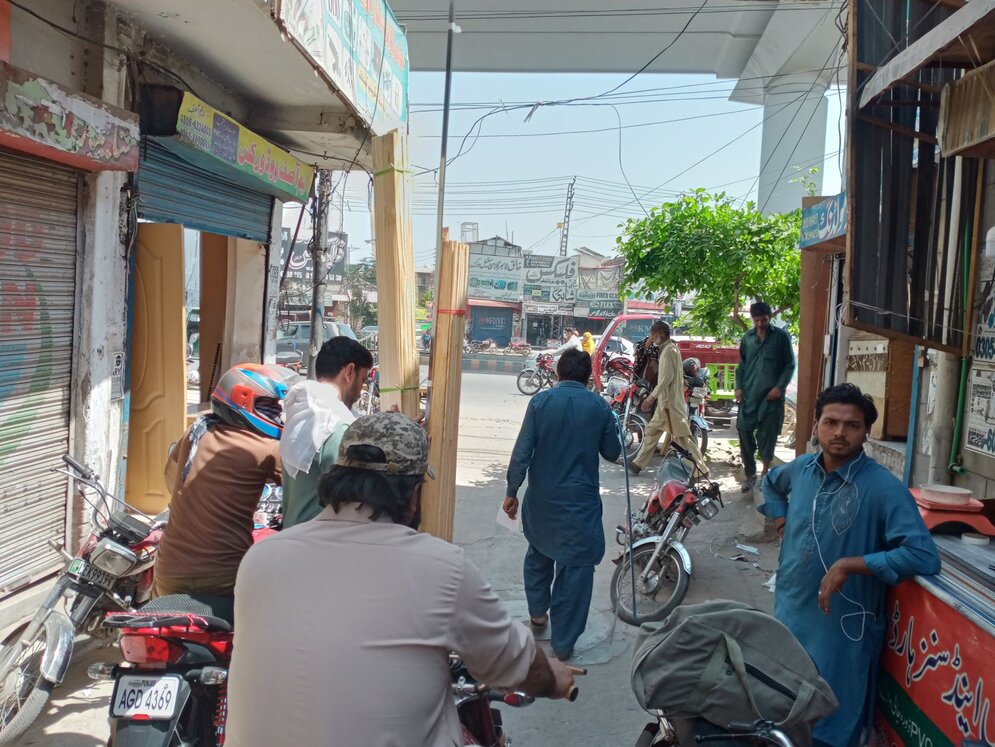
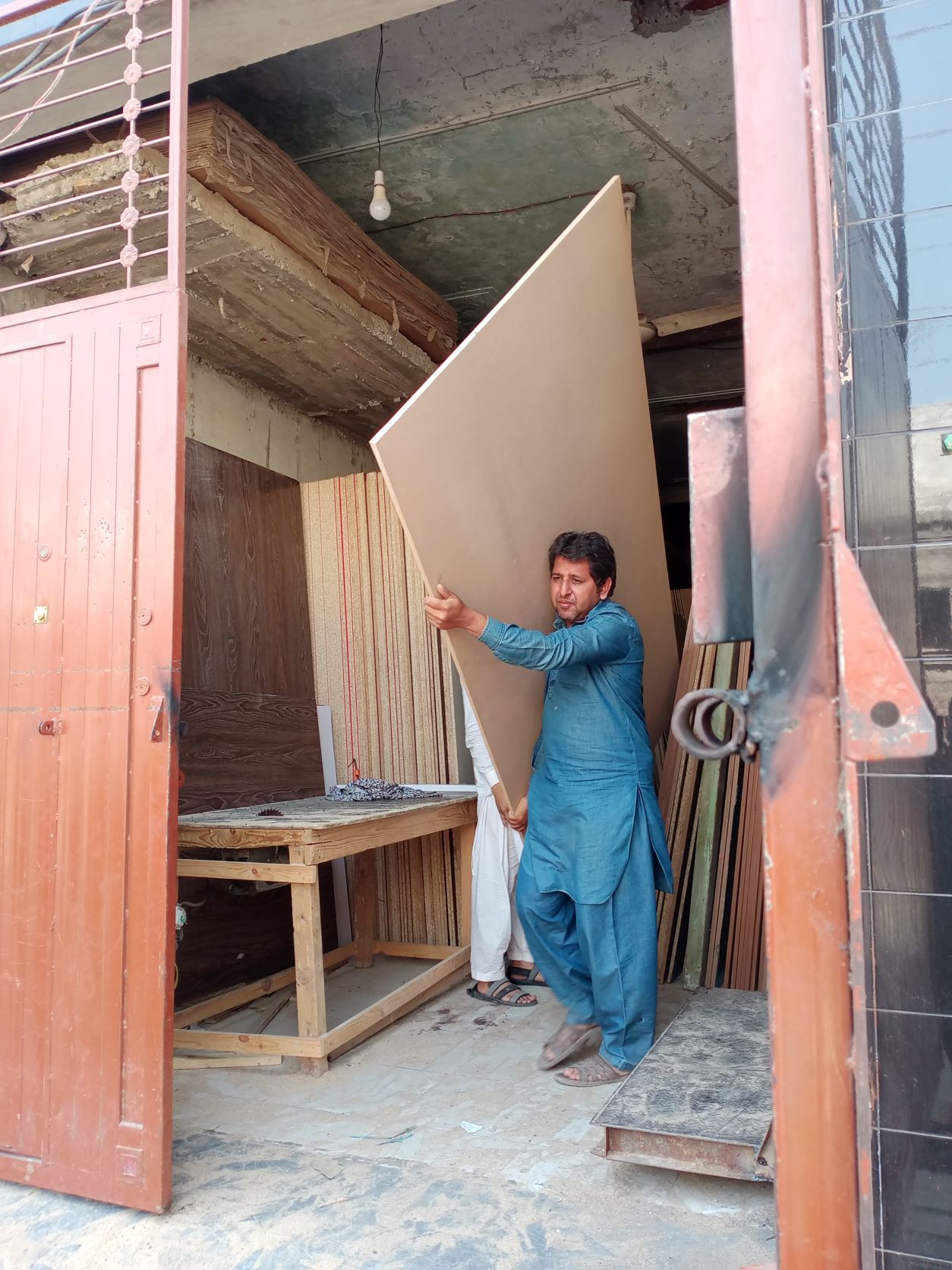
Mr Barkat was moved after receiving Junaid's letter, but he wanted to make sure his money was going to a deserving person, so he ran a background check on Junaid and found out that he rented his rickshaw from his brother-in-law, Mr Muhammad Ali. Junaid had been told the vehicle belonged to someone else and that his brother-in-law just took care of the finances for the owner.
"There is a taboo about getting favours or work from the sister in-law," said Mr Junaid's brother-in-law Mr Ali. "Junaid is hardworking and needy, but if he had learned that I owned the rickshaw it would be too embarrassing for him. Then how would he feed his family? He has four daughters. I am also from a humble background, otherwise I would support him more."
After he got to know Junaid, Mr Barkat Ali Luna gifted him the loader, upon the condition that he would work hard and support his family honestly.
Without the help of Mr Zahid and Mr Barkat, it would not have been possible for Junaid to escape from his miserable condition. The lack of a social support system makes people entirely dependent on the kindness of others.
But Junaid is delighted. "Now that I have this loader, I can pay my debts and educate my daughters. I want them to do Ph.Ds., to become better human beings, to bring forth a better generation. We won't have to worry about being thrown out of a rented house to live like vagabonds," he said. "My mother always wanted us to have a house of our own."
He said that he had been blessed by that unknown passenger who handed over Mr Barkat’s number. "If these philanthropists didn't exist, people like me would die and our children would starve. A rich man can afford to have dignity and honour, but a poor man like me is helpless."


